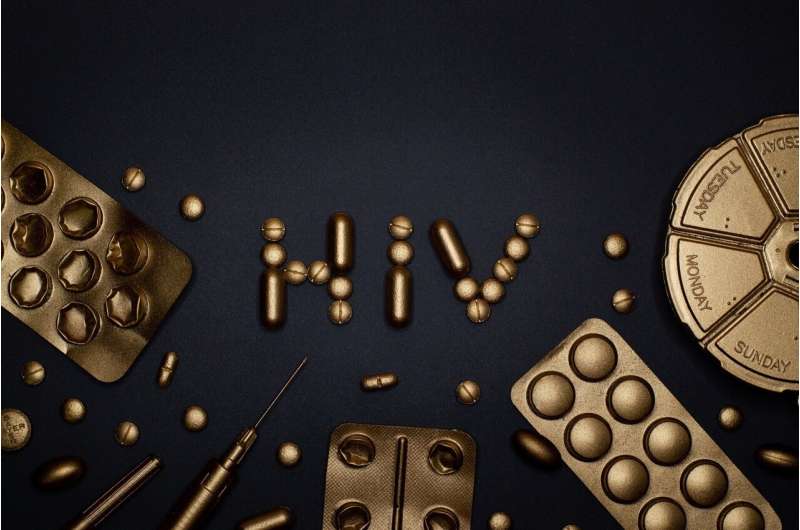This article has been reviewed according to Science X's editorial process and policies. Editors have highlighted the following attributes while ensuring the content's credibility:
fact-checked
trusted source
proofread
Major clinical trial shows simplified HIV treatment options just as effective

Two newer simplified treatment options for HIV are at least as effective as current approaches, according to the results of a world-first international clinical trial into second-line HIV therapy led by the Kirby Institute at UNSW Sydney and presented February 22 at the Conference on Retroviruses and Opportunistic Infections (CROI) in Seattle.
Second-line treatment is the name given to the range of treatment options available to a person for whom the first HIV treatment offered to them does not work. Worldwide, this is about 10% of people living with HIV.
The globally significant finding means that for more than 3 million people living with HIV around the world for whom the standard first-line HIV treatment does not work, there is now evidence to support a range of treatment options, which is crucial in allowing optimal access to treatment, especially in low- and middle-income countries.
"Recommendations for second-line therapy are generally effective at achieving viral suppression; however, some involve drug resistance testing which can be a strain on health systems. Furthermore, many treatments require multiple pills, and they can have some side effects," says Professor Gail Matthews from the Kirby Institute, who presented the findings at CROI. "Understanding the pros and cons of different treatment approaches is important to guide decision making."
The D2EFT study was designed to compare one standard approach for second-line HIV treatment—ritonavir boosted darunavir + 2 nucleosides backbone—against two alternative second-line regimens: Dolutegravir (DTG) with ritonavir boosted darunavir (DRV/R) and dolutegravir with fixed tenofovir and lamivudine or emtricitabine (TDF/XTC).
The newer treatment options were found to be at least as good as the standard of care in achieving viral suppression, but have potential additional benefits in terms of cost, tolerability and simplification.
"This finding of non-inferiority has significant implications for the management of HIV globally," says Professor Matthew Law from the Kirby Institute. "Adopting either of these simplified treatments could mean administering fewer pills, avoids the need for specialized resistance tests, and reduces the cost of the medication. In low- and middle-income countries where health systems and supply chains can be fragile, having these simplified treatment options can optimize access to treatment, while providing equally high levels of viral suppression."
D2EFT enrolled 831 patients from 14 countries. Patients were randomized to one of the three arms.
"The Kirby Institute has a large clinical network and participating sites have done an immense job to keep this trial going through the challenges of the COVID-19 pandemic. The results of our D2EFT trial are particularly robust because the study was conducted across an incredibly diverse group of countries. We're confident that the findings are relevant and important internationally, but most urgently, in low- and middle-income countries," says Prof. Law.
Meg Doherty, Director of WHO's Global HIV, Hepatitis and Sexually Transmitted Infections Programs in Geneva, has welcomed the results of the D2EFT study. "The findings further reinforce the current WHO recommendation of using dolutegravir as the preferred antiretroviral option, while also providing new insights into the simplification of second-line HIV treatment in low- and middle-income countries," she said.
"For the D2EFT study, social value is at the heart of the rationale. With a particularly vulnerable study population, involvement of the participating communities was crucial for the study's success. This was done through a Community Advisory Board (CAB) structure, which allowed many voices to be represented. Incorporating the voices of the community like this ensures the community and scientists work together to generate applicable knowledge for the community," says Leo Perelis, global chair, D2EFT Community Advisory Board.
"In global health, we must build strong defenses at all stages of care. Unitaid co-financed the D2EFT study to advance simple, tolerable HIV treatment alternatives for people for whom our first line of defense had failed. This research not only included diverse populations across countries and continents to ensure solutions are suitable to all, it is also bolstering efforts to confront drug-resistance in the fight against HIV," says Dr. Philippe Duneton, executive director of Unitaid.




















